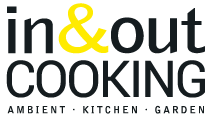Product successfully added to your shopping cart
There are 0 items in your cart. There is 1 item in your cart.
Last blog articles
Paleo Diet: what is it?
Published : 05/11/2020
Categories : Let yourself be Inspired

Paleo or Paleolithic diet is pretty much known for its effective way on weight loss and also by improving the health of paleo diet followers. As the name suggests, this diet comes from the palaeolithic era, where societies were hunter-gatherers and only eat hunted animals or harvested food from the ground. Back then, food wasn't sowned, and that's why cereals are not included on this diet. They also didn't domesticate animals, so milk and dairy products are not included as well.
The motto of the Paleo diet is “ Yes to proteins, no to carbohydrates” so this diet excludes any type of carbohydrates, and fats should be eaten moderately. Foods must be rich in nutrients and be as natural as possible, meaning they must not have any industrial processing or at least, as small as possible.
What we should eat:
- Vegetables (all of them, giving preference to seasonal ones)
- Tubers (sweet potato, manioc, yam, potato)
- Protein (meat, ideally white meat, fish, shellfish, eggs)
- Fruit (all of them, giving preference to seasonal ones)
- Dry fruits
- Seeds (sesame seeds, pumpkin seeds, sunflower seeds, flax seeds, chia seeds)
- Fats (coconut oil, macadamia oil and olive oil)
- Water, tea and coffee
- Salt flower (replacing salt)
What we should not eat:
- Cereals (wheat, rice, rye, oats)
- Dairy (milk, yoghurt, cheese, cream)
- Fats (oil and vegetable margarine)
- Processed products (with added sugar, salt, oils, food colouring, etc.)
- Carbohydrates (rice, pasta, bread)
- Beans (bean, peanut, soy, tofu, peas and lentils)
- Fatty meats
- Salt and foods containing salt
.jpg)
Benefits and Disadvantages:
Benefits:
- Rich in fibres, proteins, vitamins, minerals and antioxidants.
- Excludes the majority of carbohydrates, which eases weight loss.
- Does not contain dairy or derivatives. The exclusion of dairy products, mainly milk, brings benefits in the majority of rheumatic diseases.
- Excludes the majority of processed food.
- Has a low salt intake.
Disadvantages:
- The lack of carbohydrates can result in lack of energy.
- It's difficult to apply due to its fundamentalism in terms of food choices.
- Excess of meat can be harmful to health.
It's important to remember that you can't find a specific Paleo diet for everyone. Some guidelines support this diet, but each individual should adapt to their lifestyle and reality.
Paleo Diet as a lifestyle
Food isn't the only relevant factor for a healthy life, and the Paleo diet also focuses on your lifestyle choices: sleep, stress management, physical exercise and socialization.
Even though these actions seem small and easily adjusted, we tend to put them aside. We don’t realize the tremendous impact they have on improving our health and quality of life.
.jpg)
Sleep
Sometimes we tend to devalue sleep time, but if you sleep enough hours every night, you'll avoid stress, and it will positively impact your hormones and metabolism. This means that sleepless nights, even for a few times a week, can bring adverse effects to your health. You can establish the number of hours you sleep every night and make sure you go to bed early, so you sleep enough hours.
Stress Management
When we talk about stress management, there are two factors to take into account: reduce stress and resilience. To reduce stress, you must remove from your life what is causing it, however, this task is not always easy. The best way to get rid of stress is to understand what works for you. Have a critical view on everything you do and how it affects your stress levels, and from there, settle where you can make small changes that will tend to be crucial!
Resilience refers to how our body reacts to stressful situations in our life. It's about implementing strategies to not let these situations affect you. Sleeping the required number of hours, being active, meditating, socializing, connecting with nature, laughing and playing are some of the activities that help increase your resilience.
Physical Exercise
Exercising doesn’t always mean burning calories and losing weight. Regular physical activity reduces the risk of cardiovascular diseases, obesity, diabetes, osteoporosis, etc.
There are several ways to add movement to our days, but a simple 30-minute walk a day helps to break a sedentary lifestyle. If you prefer powerful physical exercises, such as gym exercises or sports practising, you're on a track. The most important thing is to recognise that every type of activity is better for your health than sitting all day on the couch, doing nothing.
Socialization
An element that we easily forget but has a tremendous impact on our health is community. Connecting creates resilience to stress and improves our mood.
Human beings are social beings, and it was these same social connections that guaranteed the survival of our species.
Positive social relationships stimulate changes in hormones that affect our entire body system. For example, people who feel more connected to others show lower levels of anxiety and depression. These connections also improve our self-esteem and allow us to empathise with each other because we are more willing to trust and cooperate.
Utensils from In&Out Cooking that will help you prepare your Paleo meals:

.jpg)
.jpg)
.jpg)
.jpg)